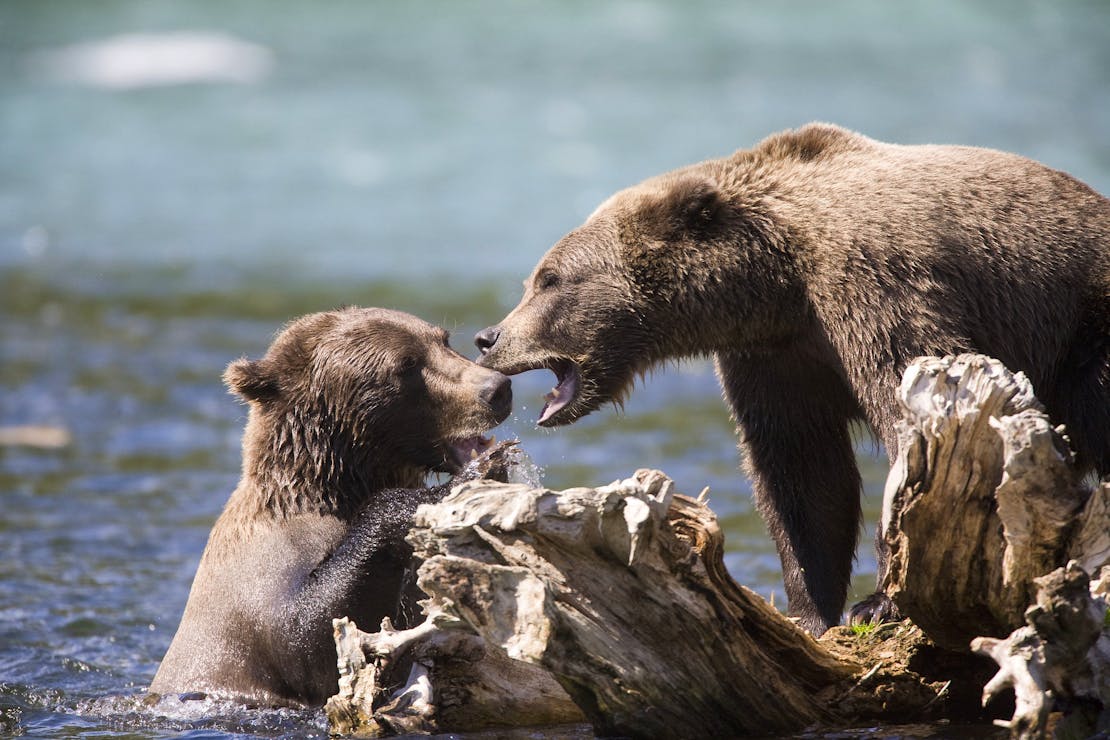As social distancing puts a damper on summer vacation plans, the heat is on – and it’s America’s wildlife getting burned. Despite the pandemic, the administration continues to undermine environmental policy for industry gain. In the last six weeks, three changes stand out that could have sweeping, negative consequences for wildlife – and people – if finalized.
Baiting Bears in Kenai National Wildlife Refuge
The administration announced a plan in June to abandon federal hunting regulations in the Kenai National Wildlife Refuge. It’s a reversal that would allow hunters to bait and kill brown bears, an activity never before permitted on the refuge.
“National wildlife refuges aren’t game farms,” said Jamie Rappaport Clark, Defenders of Wildlife former president and CEO. “This unwarranted policy reversal would set a dangerous precedent for the National Wildlife Refuge System and could threaten the sustainability of the isolated population of Kenai brown bears in Alaska.”
The public has until August 10 to comment on the proposed rule for Alaska’s Kenai National Wildlife Refuge.
Undermining ‘NEPA,’ the National Environmental Policy Act
Earlier this month, the president finalized a major overhaul of one of the country’s most important environmental laws because of claims that it slows the construction of highways, pipelines and other projects across the country. The changes to the 50-year-old National Environmental Policy Act, were made to speed up development projects around the country for economic benefit, including some that could harm the environment and accelerate climate change.
The move will prevent communities from having much say about what gets built in their neighborhoods, putting marginalized communities at increased risk. Communities of color are routinely targeted to host facilities – factories, major highways, landfills – that have negative environmental and human health impacts.
“Even while threatened by a global pandemic and the escalating loss of biodiversity, this administration is intent on destroying the law that protects our environment and gives a voice to marginalized communities of color, who often bear the burden of environmental injustice,” said Clark in a recent press release. “We will fight for the communities and imperiled wildlife that this administration would rather ignore.”
Undermining Decades of Black-footed Ferret Recovery
This month, the U.S. Forest Service decided to turn its back on its decades-long commitment to return endangered black-footed ferrets to Thunder Basin National Grassland, a nearly 550,000-acre area in northwest Wyoming. The grassland is home to a large colony of blacked-tailed prairie dogs, which are essential to the recovery of several vulnerable prairie species, including the critically endangered black-footed ferrets.
The Forest Service amendment comes at the behest of ranchers fearing their livestock will have to compete with prairie dogs for resources. The proposed rule change would lift restrictions on poisoning and recreational shooting of prairie dogs, jeopardizing the black-footed ferrets’ primary source of food and habitat.
Thunder Basin has been cited by the U.S. Fish and Wildlife Service as one of the few suitable sites for ferret recovery, meaning that if this proposal is adopted, the black-footed ferret may never recover.
Weathering the Summer Storm
Reversing and weakening regulations protecting wildlife and people from fossil fuel development and other damaging impacts has been the government’s priority in recent years. Defenders and partners are fighting every day against actions that imperil wildlife, degrade habitat and threaten communities. We’re in the courts. We’re in Congress. We’re tracking policy. We’re making sure citizens are aware. But the ongoing assault on wildlife is far from over.
If you want to stop the continued assaults on wildlife, pitch in and join the fight to save our species today!










Follow Defenders of Wildlife
facebook bluesky twitter instagram youtube tiktok threads linkedin